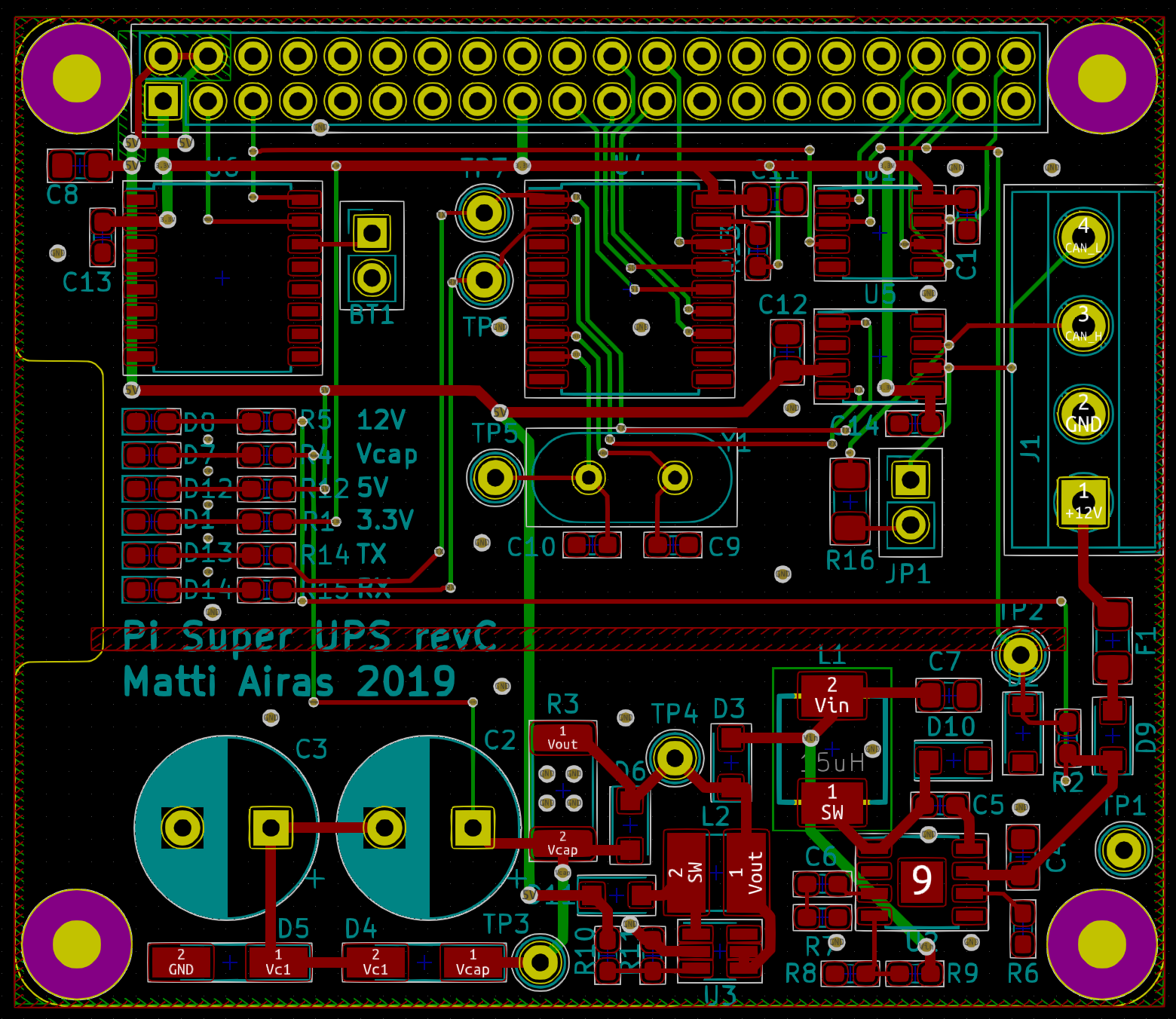Pi Super-UPS
Hardware
TODO: Explain design goals
TODO: Explain features
The KiCad design files are in the hardware subdirectory. They are still
untested and no suitability for any purpose is claimed.
Firmware
The hardware needs some ATTiny13a code to correctly control the wakeup pin (GPIO3) state. This is still to be written!
Service software
Introduction
pi-super-ups is a simple power monitor for Raspberry Pi. It
monitors a defined GPIO pin on the Raspberry Pi. If the pin goes
high for ten seconds, a shutdown is triggered. Using GPIO 3 is highly
recommended because that allows for automatic restarting when power
is restored (pulling GPIO 3 low powers on the device if it is powered
off).
The main use case for the script is to have the board powered via a couple of super-capacitors. In the case power for the board is disconnected, the supercaps are able to supply sufficient power that the device is able to shut itself down in a controlled fashion.
A sample circuit fulfilling the purpose is presented in the circuit
subdirectory.
Installation
The monitor script can be installed by issueing the following command
in the src subdirectory:
sudo python3 setup.py install
At this point, you
should already be able to run the script. However, since calling
poweroff requires elevated privileges, it is done using sudo.
Give your preferred user permissions to call poweroff without a
password by running sudo visudo and adding the following line:
pi ALL = NOPASSWD: /sbin/poweroff
Finally, to run the script automatically as a service, copy
sk_power_monitor.service to /etc/systemd/system.
Usage
To configure the monitor behavior, directly edit the script file.
